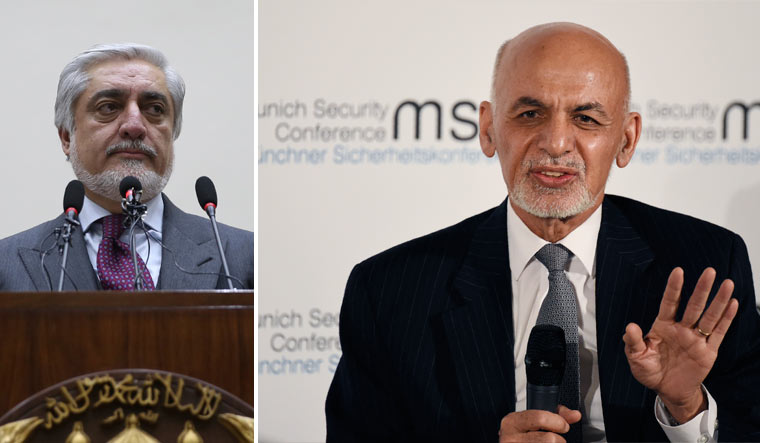Two rivalling leaders holding parallel inaugurations in Afghanistan is pushing the country to a political crisis of a new kind. In the polls held in September, incumbent President Ashraf Ghani won a second term. But the results were declared in February amidst accusations of voter fraud.
In reaction to this, former executive officer of the unity government of the Islamic Republic of Afghanistan Abdullah Abdullah vowed to form a parallel government.
The rival leaders were preparing to hold parallel presidential inaugurations on Monday after they failed to reach a deal in the face of a unified and resurgent Taliban.
According to political analyst Atta Noori, the squabbling would “gravely affect the government's position in the upcoming intra-Afghan talks”. With the US troops preparing to leave the country, the spat between the two leaders raises fear of a fragile democracy in Afghanistan.
Last-minute talks between Abdullah and Ghani reportedly extended late into the night Sunday as the two sides sought to broker an agreement. However, on Monday morning, there was little indication that any solution was found. Ghani's spokesperson announced that his inauguration would be delayed by a few hours.
With the Taliban only offering a glimmer of hope with sporadic periods of peace in the region, Afghans have little faith in Abdullah, Ghani or the election process in general.
Most of them abstained in last year's lacklustre poll that saw candidates pitch a few ideas or policies. The Taliban too, have slammed the electoral process. In fact, through a series of talks to establish peace, they have not spoken to the Afghanistan government saying that the Ghani-led government is a lapdog of the US.
Abdullah's supporters held violent demonstrations before the US finally intervened to broker an awkward deal, with Ghani as the president and Abdullah as the chief executive.
The prolonged political crisis has brought back memories of the angrily contested 2014 election, which also saw Ghani declared the winner.


